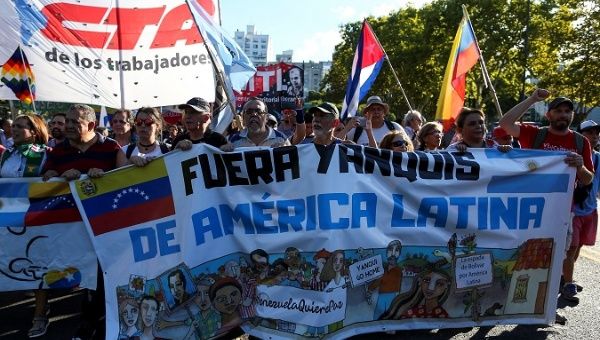New Mood In The World Will Put An End To The Global Monroe Doctrine
Every day since 7 October has felt like an International Day of Solidarity with the Palestinian People, with hundreds of thousands gathering in Istanbul, a million in Jakarta, and then yet another million across Africa and Latin America to demand an end to the brutal attack being carried out by Israel (with the collusion of the United States). It is impossible to keep up with the scale and frequency of the protests, which are in turn pushing political parties and governments to clarify their stances on Israel’s attack on Palestine. These mass demonstrations have generated three kinds of outcomes.















